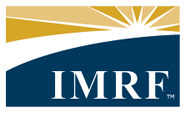Illinois Municipal Retirement Fund encourages individuals to rethink approach to savings for National Save for Retirement Week
OAK BROOK, Ill. As life expectancy across the U.S. increases each year, the Illinois Municipal Retirement Fund (IMRF) encourages individuals to rethink their savings strategies and plan accordingly during National Save for Retirement Week (Oct. 18-24). The best-funded statewide public pension in Illinois draws attention to staggering statistics from U.S. News & World Report that outline how today's healthy baby boomers have the potential to live to 95 years old (or more) – and future generations are expected to live even longer.
Saving for retirement must be a life-long process – regardless of age, health or work status.”
– IMRF Executive Director Louis W. Kosiba
Preparation for an extended retirement is critical, particularly since other studies elaborate on how ill-prepared most Americans are for retirement. For example, only 60 percent of baby boomers report having any retirement savings, according to a survey by the Insured Retirement Institute. To accommodate a longer life, some baby boomers have transitioned to a "phased retirement" – such as a part-time position or starting a business – before fully retiring. Further, 36 percent of baby boomers plan to retire at age 70 or later.
"Saving for retirement must be a life-long process – regardless of age, health or work status," said IMRF Executive Director Louis W. Kosiba. "Today’s employees cannot afford to put off thinking about retirement. Regardless of current savings or market fluctuations, all individuals can take steps to be better prepared for a secure retirement – whether in 20, 30 or 40 years.”
IMRF – the second-largest public pension plan in the state – is an independently managed and prudently run pension with a 93.1 percent funding level. As a long-term investor with a diversified portfolio, IMRF averaged a 10.24 percent return on its investments from 1982-2014. The plan identified six tips to help all individuals prepare for retirement:
- Contribute to your retirement account early: Whether individuals have an IRA, 401(k) or public pension, they must regularly set aside funds as soon as they're able to begin investing over the long-term – the earlier, the better. If your company matches a certain amount or percentage of your individual retirement contributions, be sure to contribute at least this amount to your account – don't leave money on the table.
- Boost credit: Millennials have the lowest average credit scores of all age demographics, according to the credit bureau Experian. The best way to improve credit scores is to pay bills on time. This way, if individuals would like to borrow money later on to pursue their passion – such as starting a business – they'll have enough credit to do so. Complimentary annual credit reports are available through Experian, Equifax and Transunion.
- Ensure you have health insurance coverage, regardless of your employment status: Experts predict baby boomers will remain independent longer than past generations — and a key to independent living is good health. Therefore, it is essential that individuals enroll in a comprehensive health insurance plan — whether it be through a current employer, an independent plan or supplemental health insurance with Medicare (for individuals 65 years old and older). A health insurance plan will not only help preserve independence, it will also protect individuals from hefty health care costs after an unexpected accident.
- Don’t neglect retirement investments to save for a college savings plan: While there are various options available to students in need of financial aid and scholarships, there is no such thing as a “retirement loan.” The savings in your retirement account do not affect how much your children will be offered in federal funds when the time comes. Monies set aside in a college savings plan, on the other hand, are considered “parental assets” during financial aid calculations – in other words, focusing on these savings may put you at a disadvantage.
- Open a Roth IRA for your children: Prepare your children for their own retirement by investing in an early retirement account. Each year, contribute a fixed amount to the account – and encourage your children to do the same after they begin earning a steady paycheck. Parental contributions can be minimal, but set the right tone to help ensure your children are more financially prepared for retirement. Individuals are only allowed to withdraw funds – tax-free and penalty-free – after they reach 59.5 years of age.
- Postpone collecting social security: Individuals who are able to delay collecting social security (before 70 years old) will benefit from receiving more money later. Keep in mind that there is always a mortality risk when you wait too long to start collecting. However, additional funds later in life could boost necessary income to pursue a new business idea or ease the transition into part-time work, if you are willing to take the gamble.
"Everyone needs to be mindful of their investments and savings all year long — not just during National Save for Retirement Week," said Kosiba. "Individuals can incorporate simple changes into their everyday lives to better prepare themselves for retirement.”


